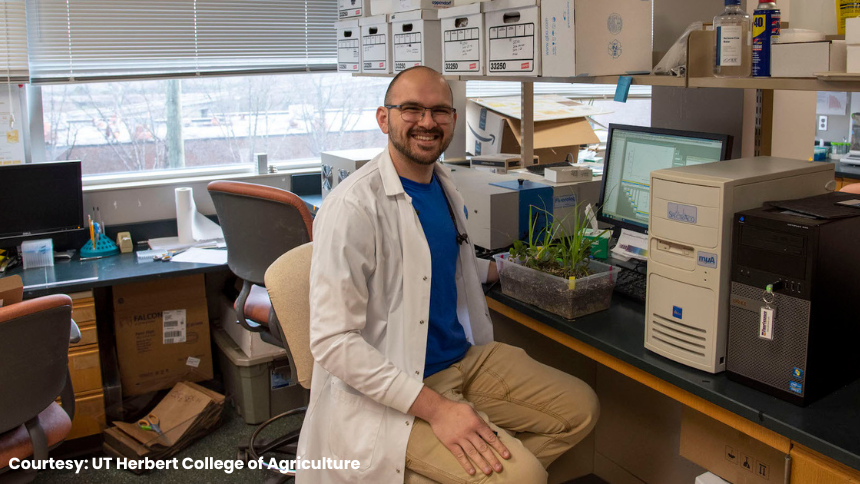In a groundbreaking development at the University of Tennessee, Knoxville’s Herbert College of Agriculture, Ph.D. student Rob Sears has successfully engineered a potato plant to detect gamma radiation. It offers an effective method for monitoring harmful radiation levels without the need for complex technologies.
Sears’ creation, called a “phytosensor,” utilizes the potato plant’s ability to indicate elevated radiation levels through changes in leaf fluorescence. When exposed to gamma radiation, the leaves of the engineered plant emit a distinct green glow. It provides a visible warning signal that can be observed over considerable distances.
The choice of potatoes for this innovative research stems from their global cultivation in diverse climates. Potatoes reproduce through tubers in the soil, generating genetically identical offspring and making them an ideal candidate for the mass implementation of this groundbreaking technology. This novel approach eliminates the need for intricate monitoring systems, offering a cost-effective, easily interpretable, and low-maintenance solution to detect harmful radiation.
As the global demand for effective radiation detection methods grows, the significance of this phytosensor technology becomes apparent. Nuclear energy utilization worldwide necessitates reliable safety measures. Phytosensors are affordable and require no mechanical maintenance. That means they have the potential to significantly enhance the safety of workers and residents near radiation sources.
The research project, funded by the Defense Advanced Research Projects Agency (DARPA), underscores the implications of this innovation in the environmental safety sector.
Sears will graduate in December 2023, and his bioengineered plant varieties represent a promising step towards a safer future. The successful fusion of agriculture, plant sciences, and food science exemplifies the interdisciplinary nature of scientific research. It also showcases how new solutions can emerge from collaborative efforts.



